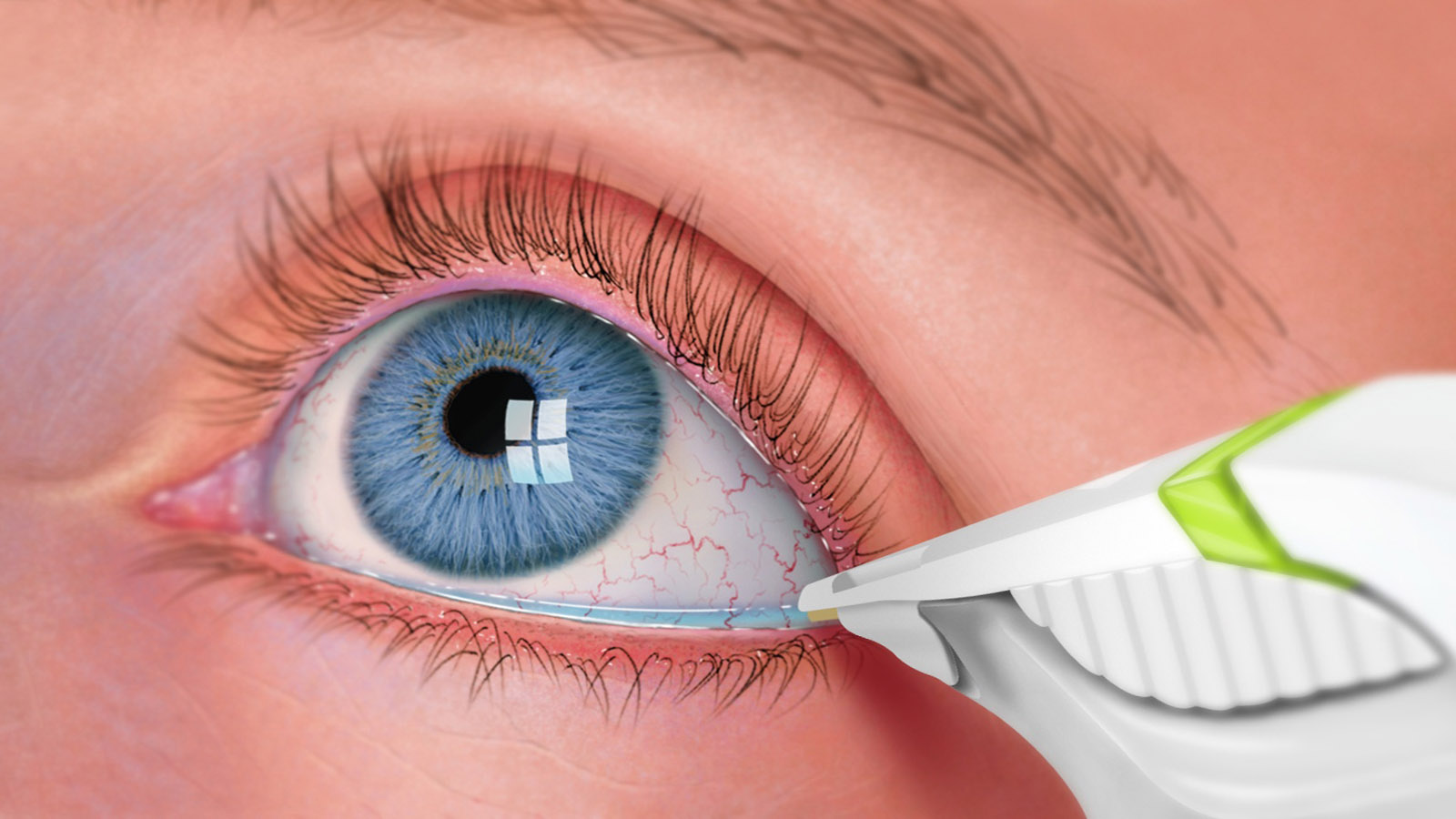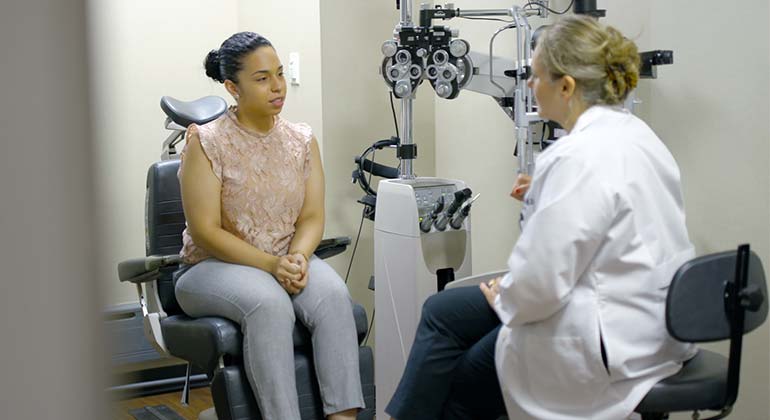Exploring the most recent Innovations in Retina Treatments for Different Eye Problems

Improvements in Macular Deterioration Therapies
Macular deterioration, a leading cause of vision loss in older adults, has seen significant progress in treatment options. One groundbreaking development is the development of anti-VEGF (vascular endothelial growth variable) shots, which have transformed the management of wet age-related macular deterioration.
In addition, the introduction of implantable miniature telescopes for end-stage macular deterioration has offered brand-new opportunities for enhancing vision and lifestyle in pick individuals. These telescopic implants can enhance visual skill and broaden the visual area, enabling individuals with innovative macular degeneration to perform day-to-day tasks with better simplicity. neurologist andalusia. Generally, these developments stand for considerable strides in the treatment of macular deterioration, providing hope and boosted results for patients encountering this challenging problem
Advancements in Diabetic Retinopathy Therapies
Remarkable improvements in the therapy of diabetic retinopathy have actually recently arised, offering appealing prospects for improving patient results and vision wellness. Diabetic retinopathy is a major difficulty of diabetic issues and a leading reason of blindness amongst working-age grownups. One of the innovation therapies consists of anti-vascular endothelial development element (anti-VEGF) shots, which have actually revealed significant success in handling diabetic person macular edema and proliferative diabetic retinopathy. These injections function by reducing unusual capillary development and leakage in the retina, consequently maintaining vision.
Additionally, laser treatments such as focal/grid laser and pan-retinal photocoagulation have worked in dealing with proliferative diabetic retinopathy by targeting specific areas of the retina to reduce irregular capillary growth or seal leaking blood vessels. neurologist andalusia. Unique medical strategies like vitrectomy have actually additionally progressed, making it possible for cosmetic surgeons to remove blood or scar cells from the eye's glasslike gel extra specifically
Advancements in Retinal Detachment Monitoring
With improvements in medical methods and technology, managing retinal detachment has seen significant improvements over the last few years. One remarkable technology is making use of small-gauge vitrectomy systems, which enable for minimally intrusive procedures, leading to faster recovery times and far better results for clients. These systems utilize smaller sized tools, leading to decreased injury to the eye and making it possible for specialists to carry out fragile maneuvers with higher precision.
In addition, the advancement of advanced imaging modern technologies such as optical comprehensibility tomography (OCT) has revolutionized the medical diagnosis and tracking of retinal detachment. OCT provides high-resolution cross-sectional pictures of the retina, allowing eye doctors to imagine the extent of detachment and strategy treatment extra successfully.
Furthermore, the usage of perfluorocarbon liquids throughout surgery has boosted surgical success prices by assisting in the reattachment of the retina. These fluids assist squash the retina and displace subretinal fluid, helping in the positioning of the detached retina back into location.
Development in Retinitis Pigmentosa Solutions
Significant developments in research study and therapy methods are driving progress in attending to Retinitis Pigmentosa, a hereditary eye problem that influences the retina's ability to react to light. Retinitis Pigmentosa (RP) results in a progressive decrease in vision, often resulting in tunnel vision and even blindness. Nevertheless, recent advancements in read review the area offer want to people influenced by this problem. eye doctors in andalusia.

In addition, stem cell therapy shows pledge in changing harmed retinal cells with healthy and balanced ones, potentially bring back vision in people with RP. Professional tests are underway to analyze the security and efficiency of this cutting-edge technique.
Advancing Therapies for Retinal Vascular Illness
Structure upon the developments in addressing Retinitis Pigmentosa, scientists are now discovering developing therapies for retinal vascular diseases, aiming to visit additionally enhance vision treatment and results in people with different retinal problems. Retinal vascular illness, such as diabetic person retinopathy and retinal capillary occlusion, are defined by irregularities in the capillary that supply the retina, bring about vision problems or also vision loss if left unattended. Existing therapies for retinal vascular illness include anti-VEGF injections, laser therapy, and corticosteroids to take care of the underlying vascular adjustments and minimize the threat of difficulties.
Current improvements in the field of retinal vascular illness treatments concentrate on unique medication delivery systems, gene treatments, and stem cell-based techniques to target the certain pathophysiology of these conditions. For instance, sustained-release implants are being created to supply constant medication distribution, minimizing the requirement for frequent shots. Gene therapies intend to fix hereditary mutations associated with particular retinal vascular discover this illness, offering a possible remedy or long-term management approach. Stem cell research study holds pledge for regrowing damaged retinal tissues and restoring aesthetic function in individuals with vascular retinal disorders. By progressing these ingenious treatments, scientists strive to enhance the lifestyle for people affected by retinal vascular illness and lead the way for individualized and much more reliable vision care methods.
Conclusion
In final thought, the area of retina treatments has seen substantial advancements in recent years throughout numerous eye problems such as macular degeneration, diabetic retinopathy, retinal detachment, retinitis pigmentosa, and retinal vascular illness. These developments supply wish for improved outcomes and lifestyle for individuals struggling with these conditions. Continued research study and advancement in this location are essential for additional development in the therapy of retinal illness.
From Macular Deterioration to Diabetic Retinopathy, Retinal Detachment, Retinitis Pigmentosa, and Retinal Vascular Conditions, the most recent technologies are reshaping the landscape of ocular healthcare.Building upon the advancements in attending to Retinitis Pigmentosa, researchers are currently discovering advancing therapies for retinal vascular diseases, aiming to even more enhance vision care and outcomes in people with different retinal conditions. Retinal vascular illness, such as diabetic retinopathy and retinal vein occlusion, are characterized by abnormalities in the blood vessels that supply the retina, leading to vision problems or also vision loss if left without treatment. Stem cell study holds pledge for regrowing damaged retinal cells and recovering aesthetic function in clients with vascular retinal disorders.In conclusion, the area of retina therapies has seen significant advancements in current years throughout different eye conditions such as macular degeneration, diabetic retinopathy, retinal detachment, retinitis pigmentosa, and retinal vascular diseases.